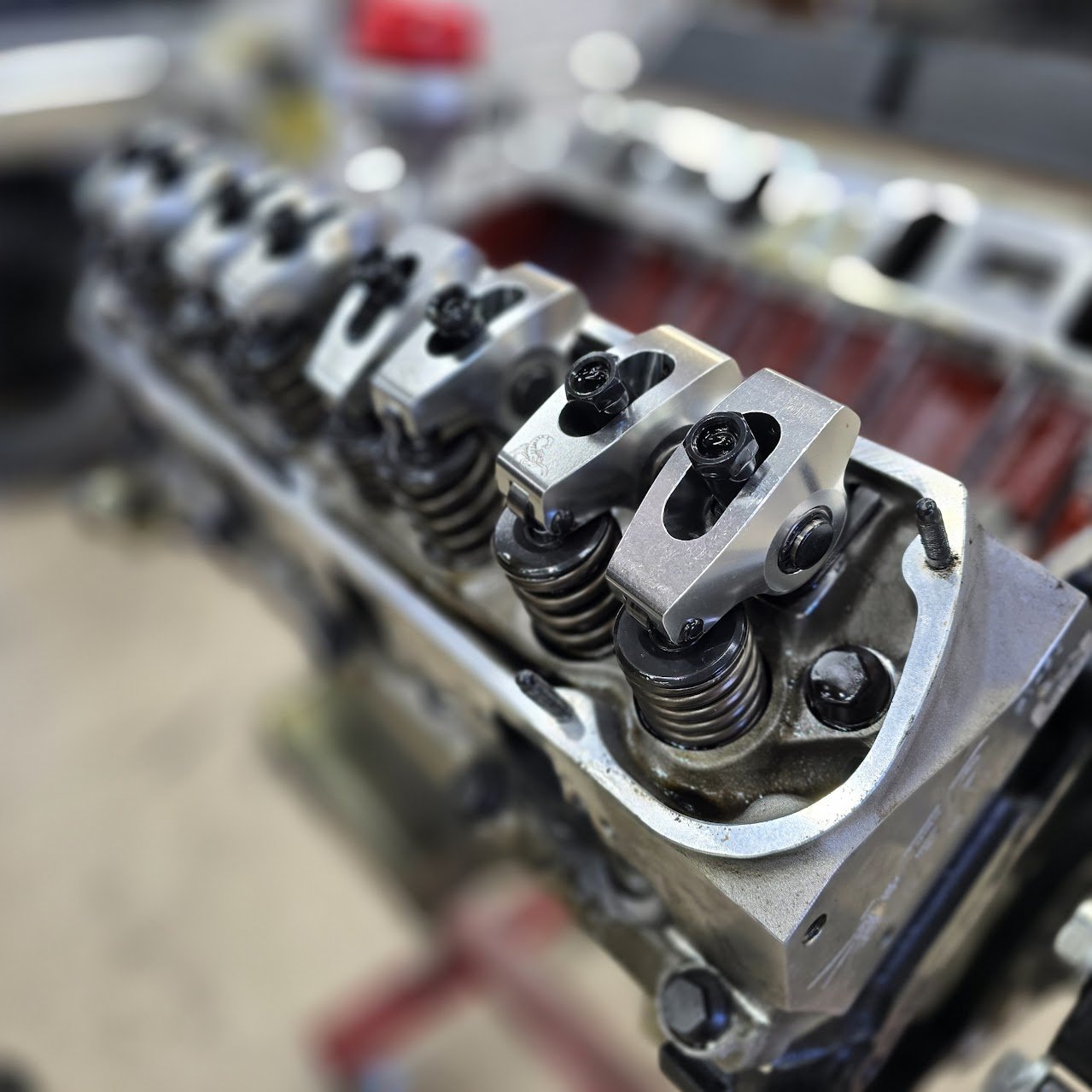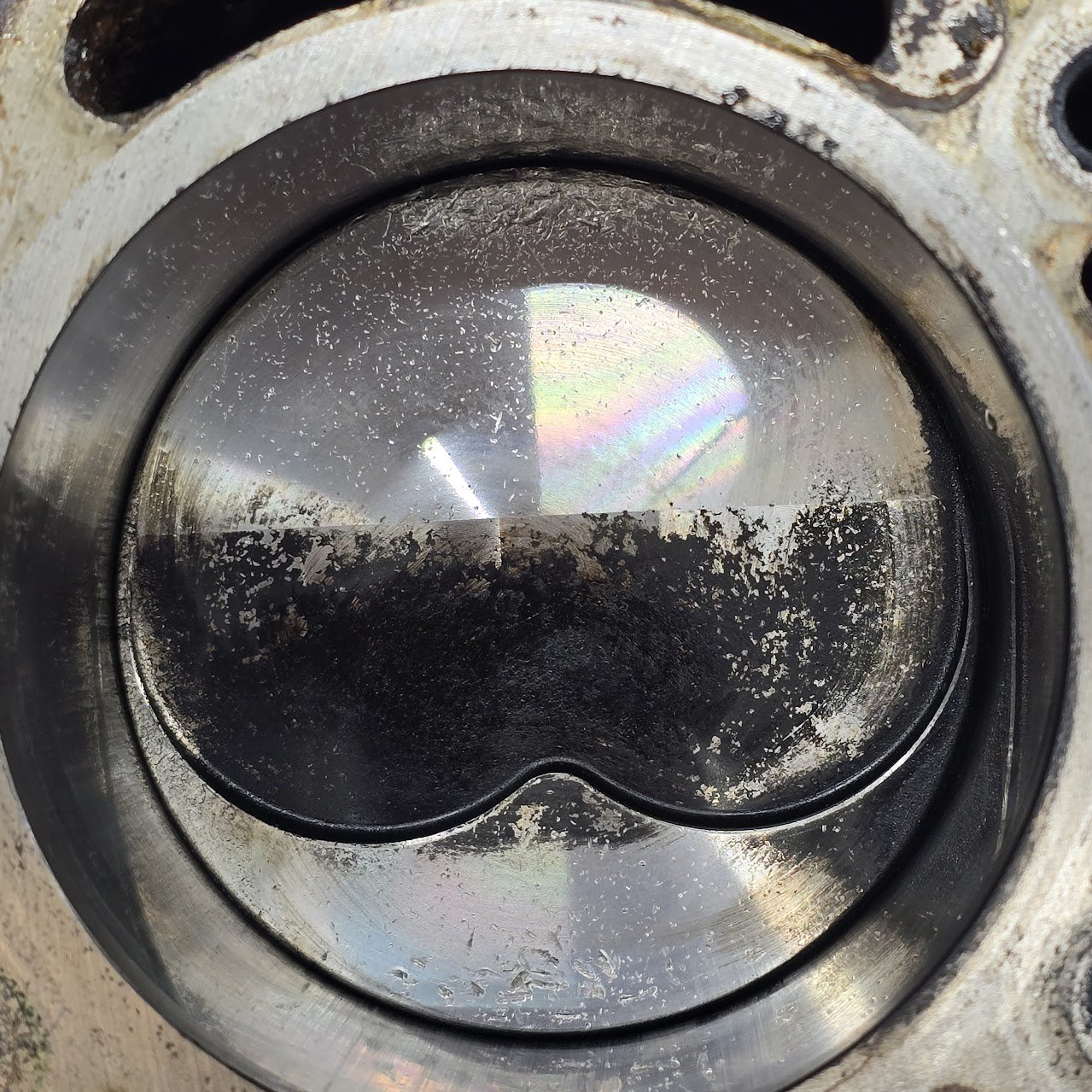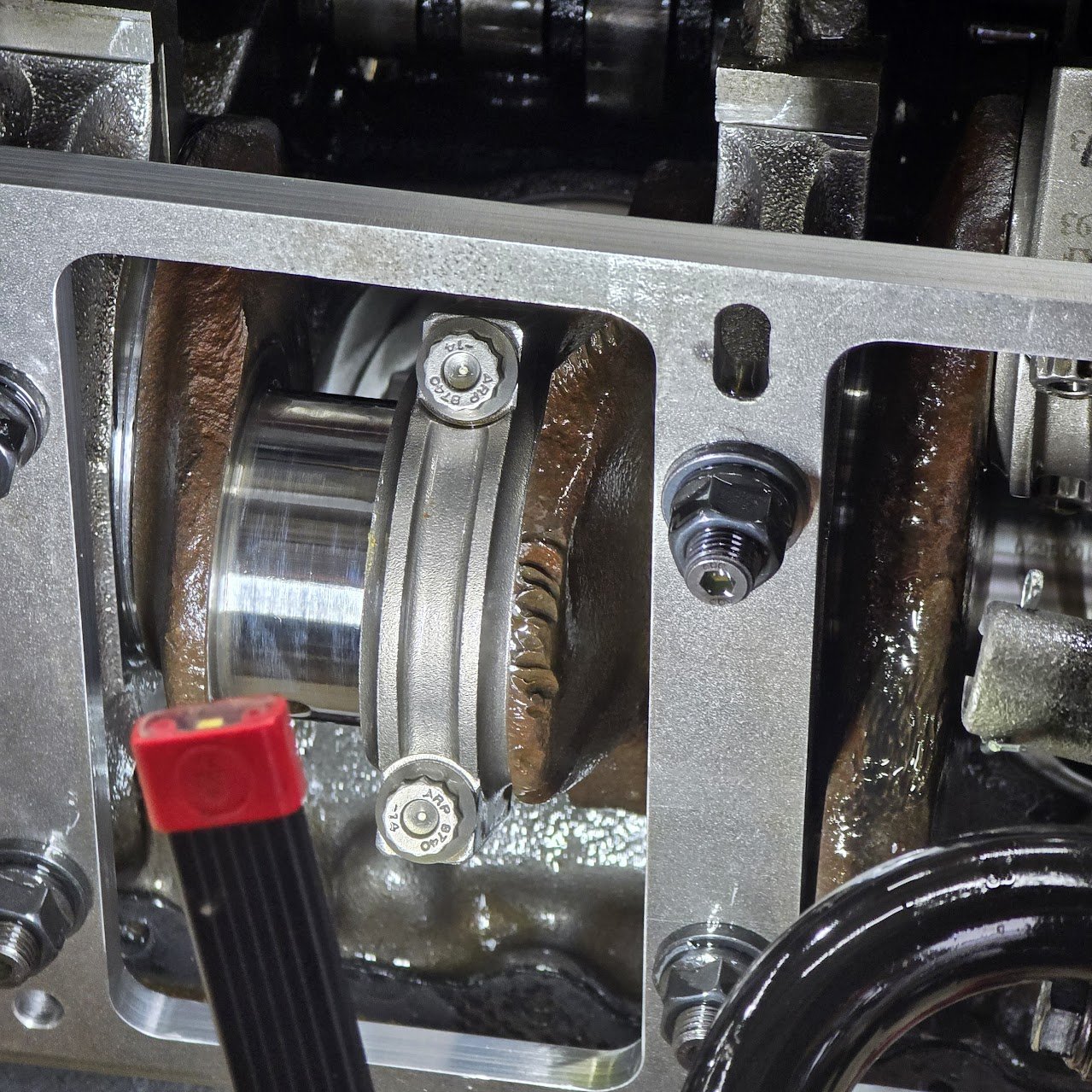
Project: 1969
Oldsmobile
Cutlass
Status: Completed

ESC
1969 Oldsmobile Cutlass Supreme, with an Olds 350 “Rocket” motor. Came in for an estimate to get the car running and driving.
Throughout our inspection process found the motor had a lower-end knock. After getting approval from the customer we did a teardown on the motor we found rod bearings that were not matched to the crank, a bent rod causing the piston skirt to score the cylinder wall, and also signs of foreign material that scored the top of the piston and bottom of the head.
History
and Facts
Here are some facts about the 1969 Oldsmobile Cutlass:
Body styles
The 1969 Cutlass was available in several body styles, including the Cutlass S, Cutlass Supreme, and Hurst/Olds.
The Cutlass S was a two-door sports coupe with a 112-inch wheelbase.
Engine
The Cutlass had a 350 CID Olds engine with 250 horsepower. Other engine options included a 215 cu in aluminum V8 with a four-barrel carburetor and dual exhaust.
Transmission
The Cutlass had a Powerglide automatic transmission, but other options included a 3-speed manual and a 3-speed Roto Hydramatic.
Brakes and steering
The Cutlass had power brakes and power steering.
Interior
The Cutlass had white vinyl bench seats, a heater and defroster, seatbelts, and chrome Oldsmobile factory-style wheels.
Tires
The Cutlass came with B.F. Goodrich RWL tires.
Other features
The Cutlass had dual oval outside mirrors and an ignition switch on the steering column.
Production
Nearly 170,000 Cutlass models were produced in 1969, making it one of America's best-selling cars of the year.



















Not Ideal. See next image for better view.

The previous shop that "built" this engine did not measure properly, resulting in the damage seen above.

Darker contrast shows another range on the wear.



This is why we have trust issues.





Journal Rod is not the correct diameter for what the specs describe. It should house a tennis ball inside it.
Mechanical Labor
with Brian
-
Initial Inspection
Finish Wiring Harness (Painless)
Check Suspension
Check Trans Shift Cable
Check Starter/Alternator
Check the Steering Box and Resi
Check Radiator and Resi
Install Gauges
Hard mount fenders
Install customer-supplied battery tray
***Goal: get the car in a running, driving stopping condition***
-
- Remove Exhaust
- Remove Driveshaft
- Remove Transmission
- Pull Motor
- Teardown and diagnose lower-end knock
- Estimate for repair will be done after inspection is done
-
Exhaust removed
Headers disconnected
The driveshaft was too long, had to put weight on the rear end to pull the driveshaft
Transmission removed
Sniper removed











